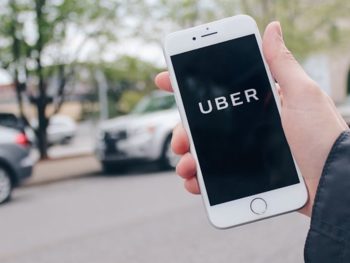Uber’s High Court loss to shake up ride-hailing sector
A High Court ruling that Uber’s business model is unlawful could trigger price rises across all ride-hailing firms in the capital as they revamp their operations.

The ADCU ridesharing driver union said the ruling will fundamentally restructure the private hire industry in London
The ruling set out that it is unlawful for a private hire vehicle (PHV) operator to act as an ‘agent’ between the driver and passenger, meaning that all operators must contract directly with both drivers and riders.
As a result, Uber, and other ride-hailing firms such as FreeNow, which was also involved in the case, could now be liable for VAT. And this in turn could add up to 20% to the cost of the trip.
The ruling came on the back of a Supreme Court case in February that said Uber drivers were not self-employed, but should be classed as workers entitled to workers’ rights including holiday pay, a guaranteed minimum wage and an entitlement to breaks.
Uber then sought a declaration from the High Court that it was lawful for its drivers to continue to contract directly with Uber’s passengers for transport services.
The ride hailing giant argued that its role was confined merely to that of an internet booking agent and that it was not a party to any contract for the provision of transport.
Its application has now been refused and the High Court said that operators such as Uber that accept bookings are “required by the 1998 Act to enter (as principal) into a contractual obligation with the passenger to provide the journey in respect of that booking”.
The ADCU ridesharing driver union, which opposed Uber in the court, said the ruling will fundamentally restructure the private hire industry in London as almost all 1,832 TfL-licensed operators have used this model of operation since the industry first came under regulatory supervision in 2002.
James Farrar, ADCU general secretary, said: “This was a failed collateral attack on the Supreme Court ruling by Uber who sought to break any link between its obligation to obey employment law and its licence to operate in London. Rather than fix its broken business model, Uber was determined to double down on misclassification at the cost of worker rights, passenger safety and the avoidance of VAT. Because TfL declared neutrality before the court, the ADCU had no choice but to step in and use our own meagre resources to defend this case. Our victory will now make misclassification unlawful, transform the London minicab industry for the better and finally eradicate sector wide worker rights abuses.”
The GMB union also welcomed the ruling.
Mick Rix, GMB national officer, said: “GMB actions in the courts have won valuable worker rights for drivers.
“Today’s ruling provides clarity and backs up what GMB we have been saying for years – private hire drivers are workers and must be treated as such under law.
“It means TfL’s guidance is now incorrect and it means most operators are acting illegally and must get their house in order.
“GMB urges private hire operators such as Bolt and Addison Lee – who still refuse to give drivers the rights to which they are legally entitled – to change their business models in light of today’s judgment.”
Uber has also responded to the judgment. A spokesperson said: “Every private hire operator in London will be impacted by this decision, and should comply with the supreme court verdict in full. We’re not the only player in town. Other operators must also ensure drivers are treated fairly.”












